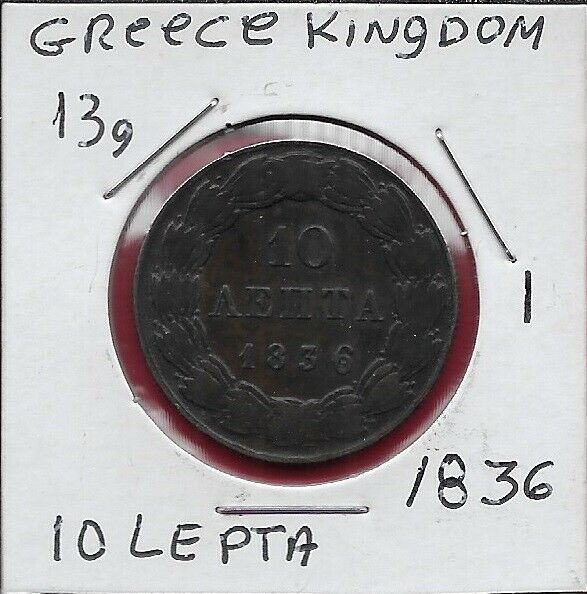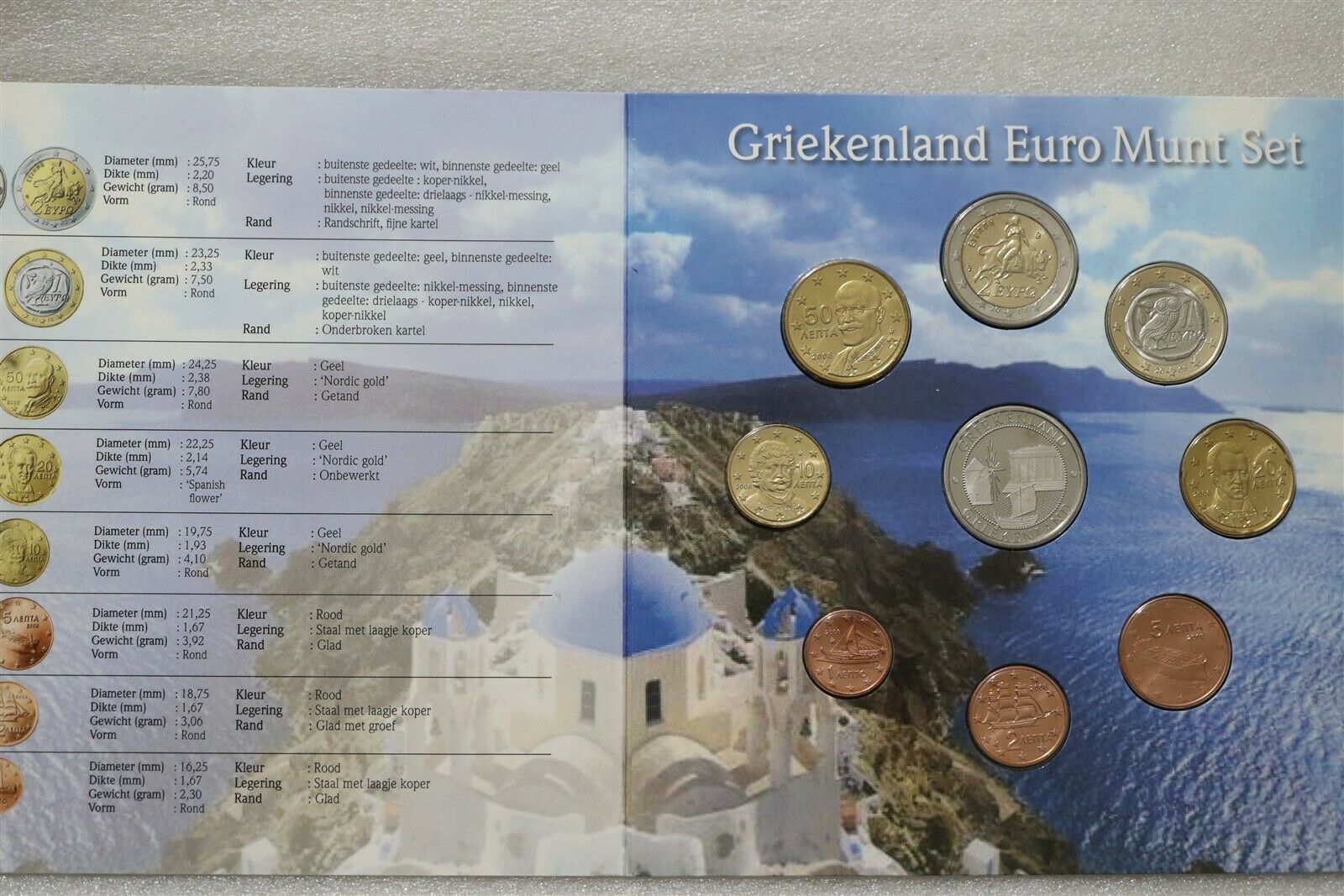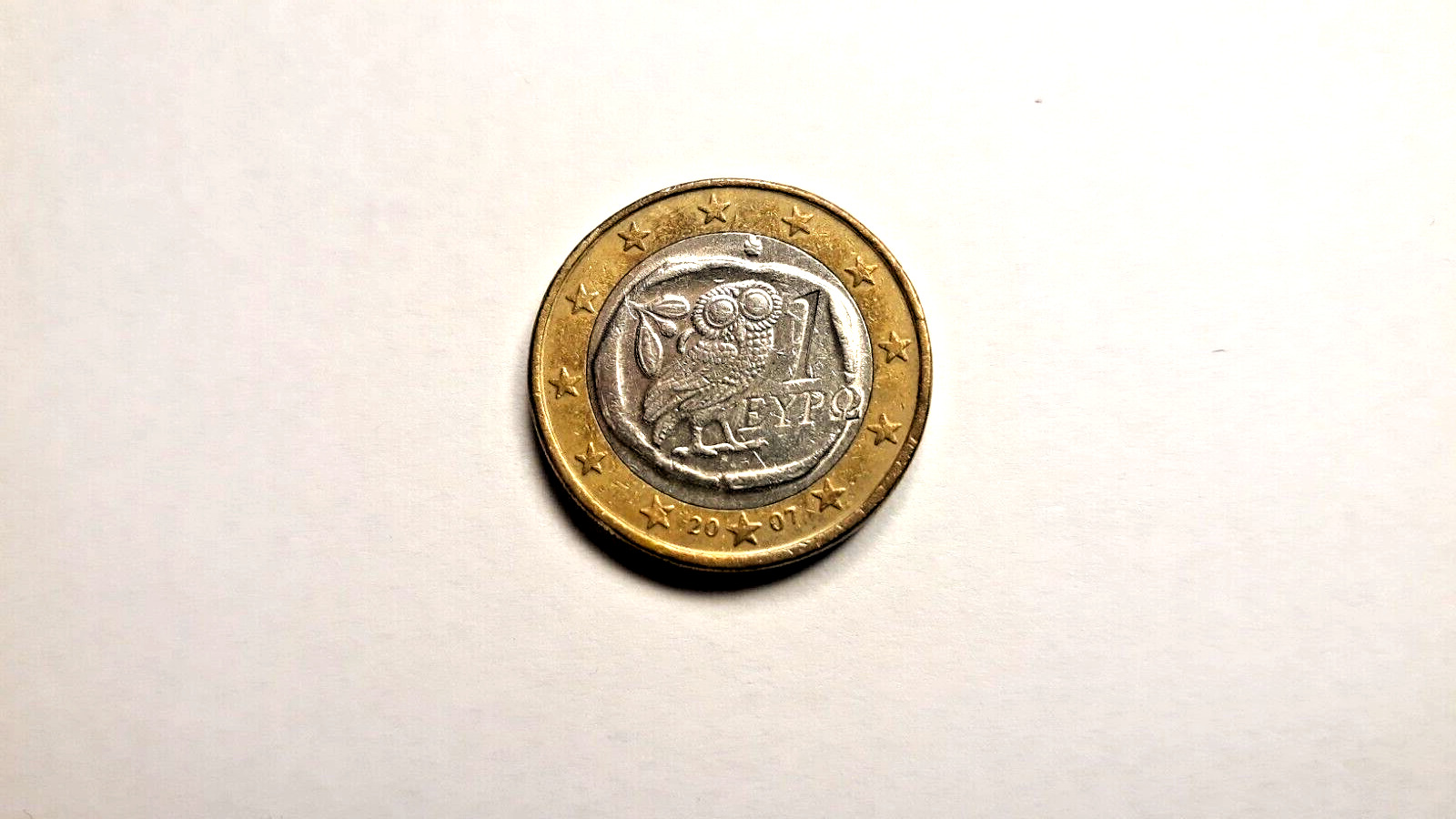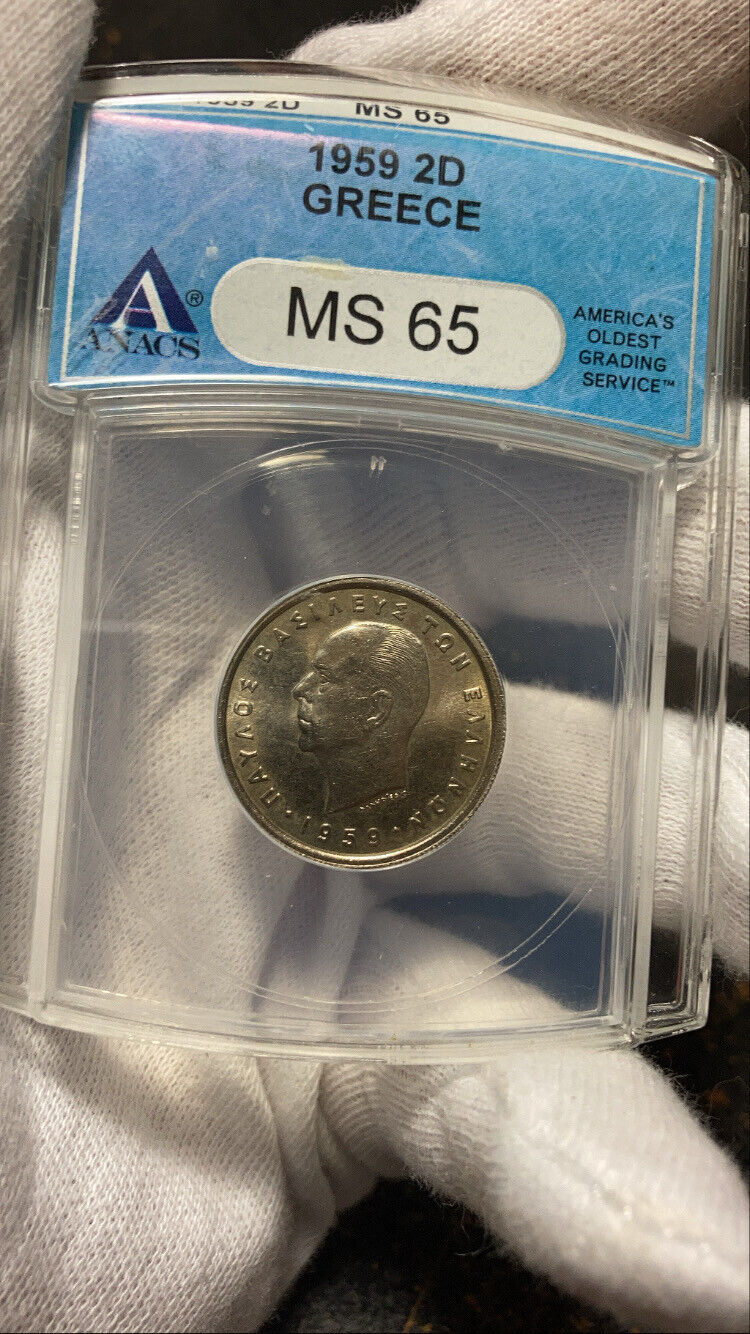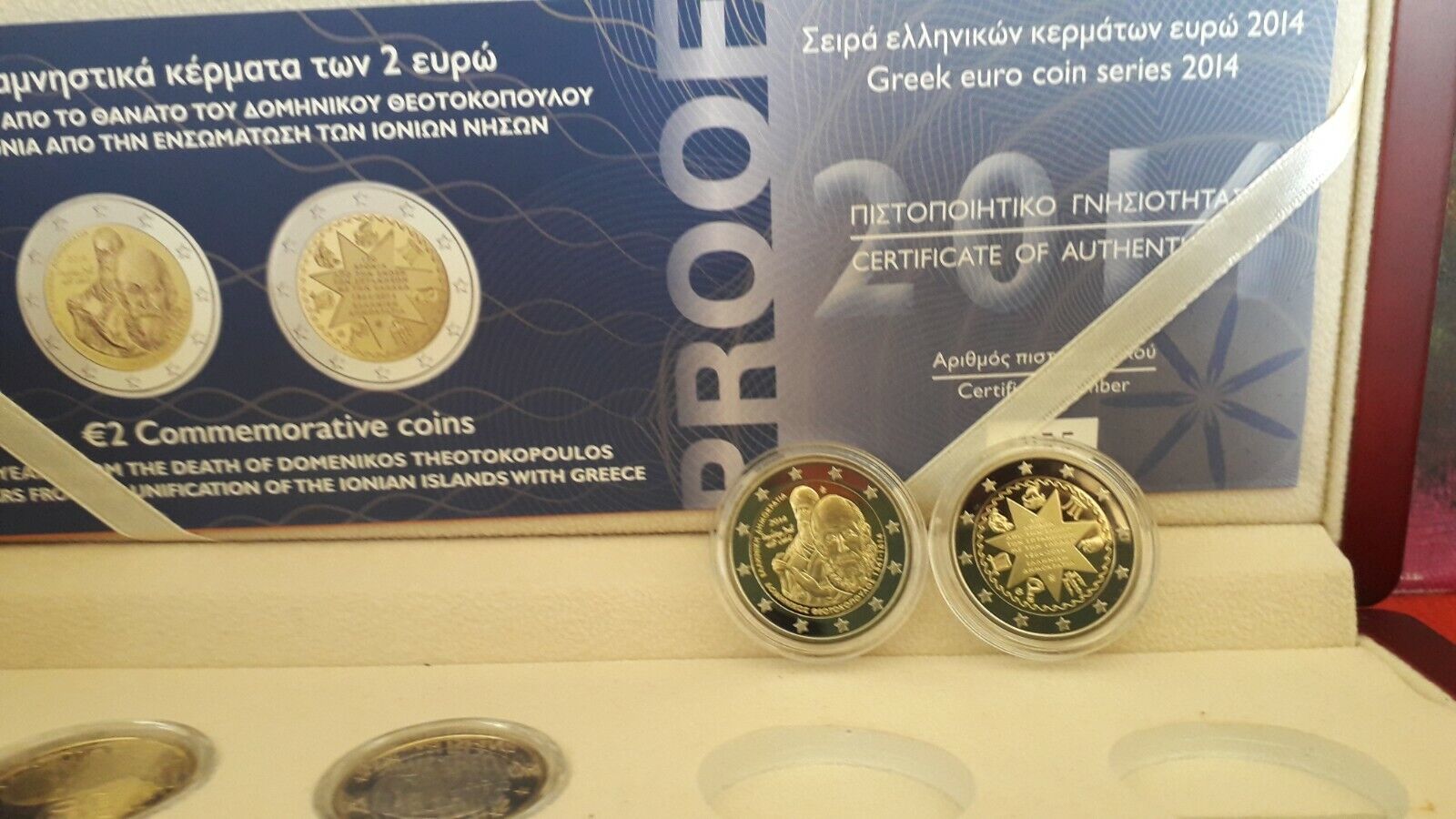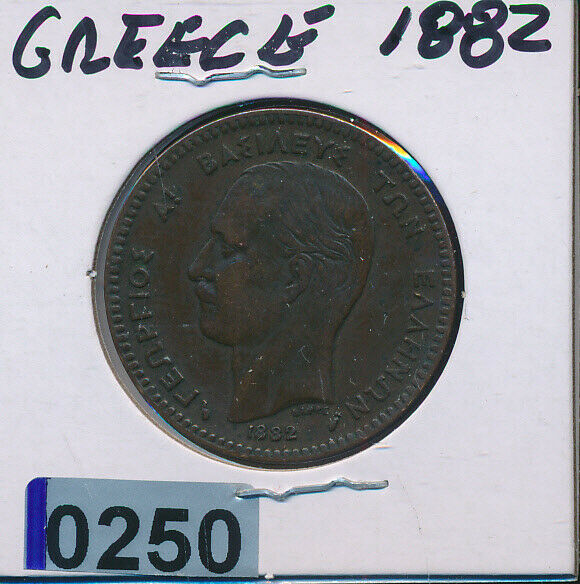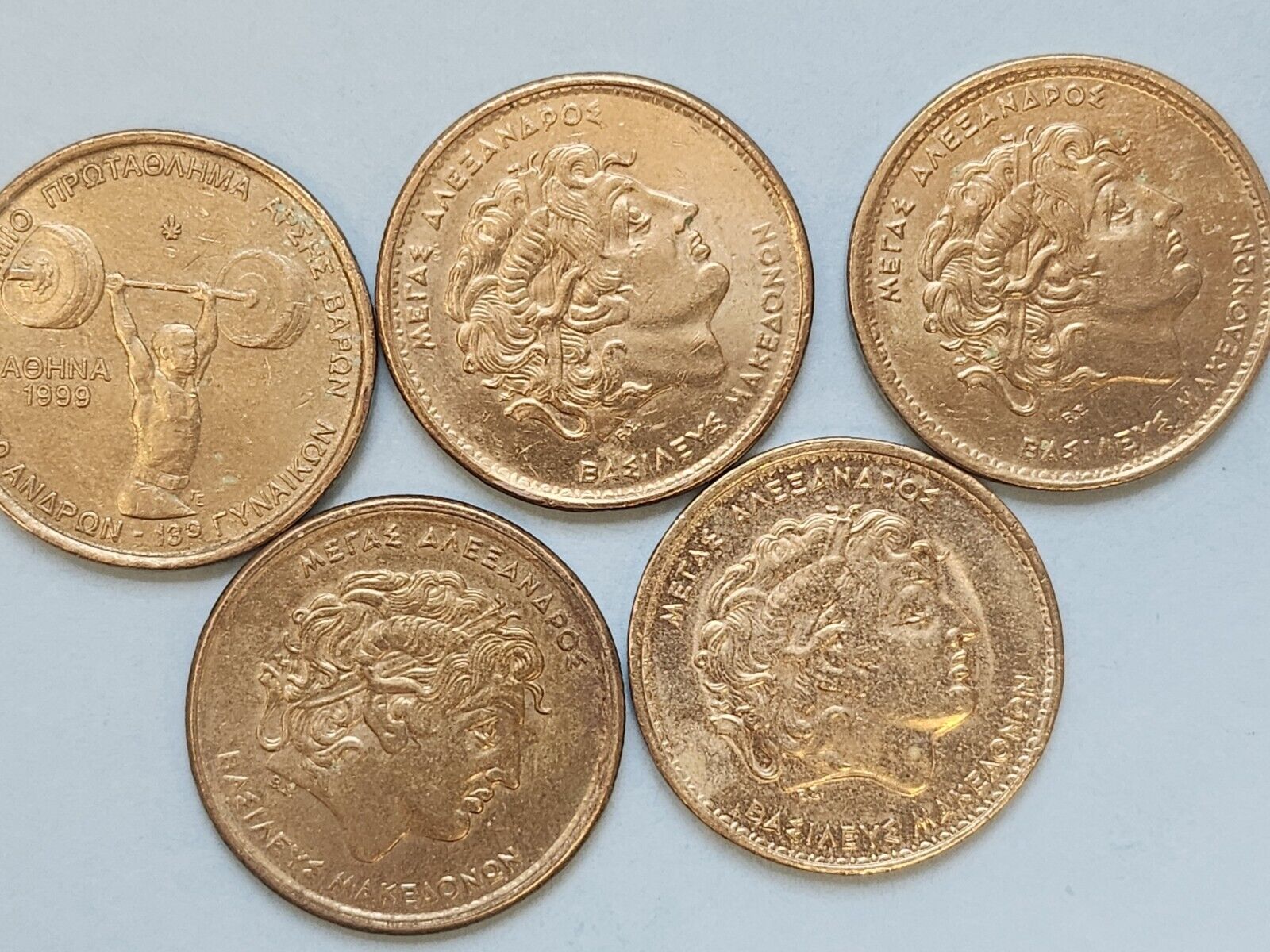-40%
1828, Greece (1st Hellenic Republic). Rare Copper 5 Lepta Coin. PCGS AU-55 BN!
$ 416.59
- Description
- Size Guide
Description
CoinWorldTV1828, Greece (1st Hellenic Republic). Rare Copper 5 Lepta Coin. PCGS AU-55 BN!
Mint Year: 1828
Mint Place: Aegina.
Denomination: 5 Lepta (type A.1)
State: Greece (1st Hellenic Republic).
Governor: Ioannis Antonios Kapodistrias
Condition:
Certified and graded by PCGS as AU-55!
Reference: Chase 139-I.e (
Rare variety!
), KM-2 (
00 in XF!
).
R!
Material: Copper
Weight: 8.2gm
Obverse:
Cross above phoenix rising from fire, head upturned left. Divine light (
Rare variety with divergent rays!
) shining from upper left corner. Mint name (AEGINA) below.
Reverse:
Denomination (5 Lepta) within wreath. Date (1828) below.
Authenticity unconditionally guaranteed.
Bid with confidence!
The
First Hellenic Republic
is a name used to refer to the provisional Greek state during the Greek War of Independence against the Ottoman Empire. It is a purely historiographical term, highlighting the constitutional and democratic nature of the revolutionary regime prior to the establishment of the independent Kingdom of Greece, and associating this period of Greek history with the later Second and Third Republics.
In the first stages of the 1821 uprising, various areas elected their own regional governing councils. These were replaced by a central administration at the First National Assembly of Epidaurus in early 1822, which also adopted the first Greek Constitution, marking the birth of the modern Greek state. The new state was not recognized by the Great Powers of the day, which, after initial successes, was threatened with collapse both from within due to civil war and from the victories of the Turko-Egyptian army of Ibrahim Pasha.
However, by this time (1827), the Great Powers had come to agree to the formation of an autonomous Greek state under Ottoman suzerainty, as stipulated in the Treaty of London. Ottoman refusal to accept these terms led to the Battle of Navarino, which effectively secured complete Greek independence.
In 1827, the Third National Assembly at Troezen established the
Hellenic State
and selected Count Ioannis Capodistrias as Governor of Greece. (Therefore the state is often called
Governorate
.) After his arrival in Greece in January 1828, Capodistrias actively tried to create a functional state and redress the problems of a war-ravaged country, but was soon embroiled in conflict with powerful local magnates and chieftains. He was assassinated by political rivals in 1831, plunging the country into renewed civil strife. He was succeeded by his brother Augustinos, who was forced to resign after six months. Once again the three "Protecting Powers" (Great Britain, France and Russia) intervened, declaring Greece a Kingdom in the London Conference of 1832, with the Bavarian Prince Otto of Wittelsbach as king.
Only 1$ shipping for each additional item purchased!





